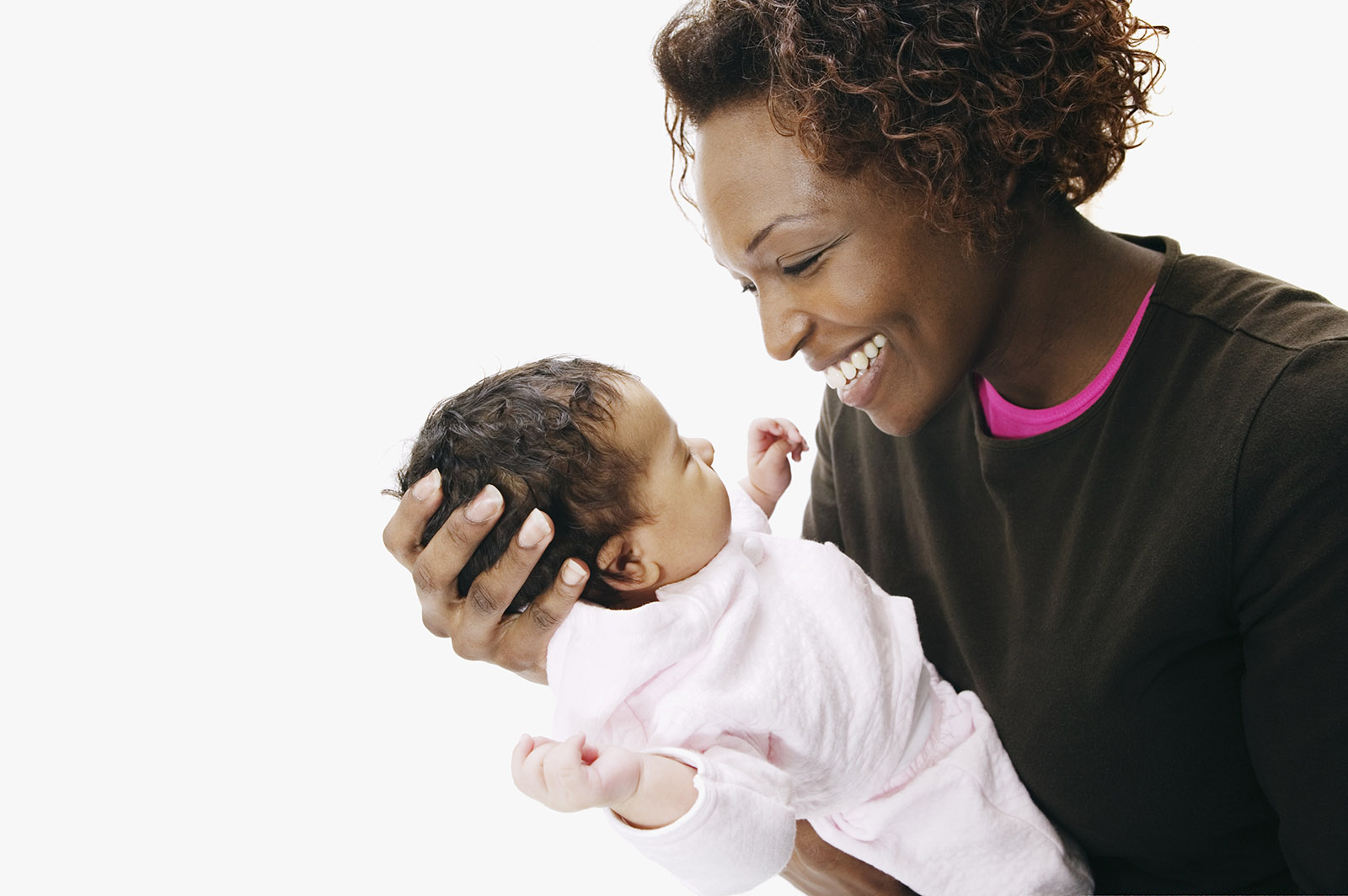by Judy Dutton
Do you wake up in the morning, French-braid your daughter’s hair, volunteer coach at your son’s soccer match, feed them an organic, healthy lunch, and still manage to squeeze in a Pilates class, run your “dream business” on the side, and greet your husband with a kiss and yet another home-cooked meal once he’s home from work? Yeah, right! The truth is, many moms still strive to be perfect parents even when they know these sort of scenarios are but pie in the sky dreams — and new research suggests that the huge gap between our ambitions and reality is making new mothers anxious and depressed.
Carrie Wendel-Hummell, a University of Kansas sociologist, says the anxiety and depression typically blamed on hormones after baby arrives might be something else entirely.
After conducting in-depth interviews with 47 new mothers and fathers who experienced mental health symptoms during pregnancy or after their child was born, she found that parents’ idealized expectations could also throw our mental health for a loop. And it’s not just moms. Dads are dealing with it too.
“These idealized expectations of parenthood, or super-parent pressures, were most prominent among educated, middle-class parents who often accustomed to success in their lives,” says Wendel-Hummell. “They know that parenting is not easy, but in practice, it’s much more difficult than they envisioned. Their idealized expectations and consequential let-down contributes to their mental health symptoms.”
Worried whether the “super parent” complex could be eating away at your peace of mind? Here are some signs you could be in danger of the issues Wendy-Hummell is talking about:
1. You planned to have kids at the “right” time. You held off on popping out babies until you got that promotion, or your husband’s business took off. Which is great — as long as you don’t assume that because you waited for that opportune time, you’ll have an easier go raising kids.
“These parents tended to plan childbirth for a time that seemed perfect,” says Wendel-Hummell. “But this can often led to a false sense of control — that because they planned carefully, things will go as planned. The reality is that parenting an infant is less predictable and a more hands-on experience compared to many other roles.”
2. You read a lot of parenting books. “Middle-class mothers, in particular, also read a lot of books and other materials to prepare for parenthood,” Wendel-Hummell explains. “These books often have very strong ideas about what is the ‘best’ way to care for an infant. It can still help to have some resources and ideas available, but don’t take too much stock in anyone approach and instead learn as you go.”
3. You have rigid expectations on the “best” way to raise your child. Thinks “breast is best” and there’s no way you’ll feed your baby formula? Think attachment parenting 24/7 is the only way to raise a secure, confident kid? You could be setting yourself up for failure and a heavy dose of guilt.
“Parents sometimes believe that there are dire consequences for our children’s emotional and intellectual development if they, for example, cry ‘too-much’ or are given formula,” says Wendel-Hummell. “These unrealistic expectations set mothers up for failure and puts the blame on mothers.”
4. Dad is eager to be involved, but flummoxed on how. Wendel-Hummell’s research showed dads tended not to internalized the pressure of being a super parent the way moms do, but that doesn’t mean they don’t feel it.
“Fathers experienced confusion about their role and exactly what they should be doing,” Wendel-Hummell says. “They know they want to be more hands-on and involved with their children than previous generations. But they are the first generation to embrace hands-on fathering so widely and find limited role models and little social support. Further, they still have intense bread-winning pressures. They also feel their new nurturing father roles are relatively ignored by employers, doctors, parenting experts, media, and family and friends.”
5. You feel guilty for not measuring up — almost all the time. Nobody’s perfect. Most of us can’t live up to our absolute highest ideals. But even knowing that isn’t always enough.
“These deflated expectations led to feelings of failure or guilt,” warns Wendel-Hummell, “thus contributing to postpartum depression and anxiety for many.”
Her study found moms calling themselves “bad moms” for things as simple as not understanding why baby cried, having a baby who wasn’t sleeping well or not being able to breastfeed.
“In result, some parents felt like they had to hide their ‘failures,'” Wendy-Hummell says, “or go to great extents to justify their parenting choices, otherwise they would be judged as bad parents.”
But you don’t have to let yourself be felled by the super-parent complex. Get some help with the kids. Find supportive friends. Seek professional help. Or, if you think you can do it alone, simply revise your expectations. That’s what Wendel-Hummell saw in her study — parents accepting that you can be good parents without having to be perfect.
“They come to see that there are many different pathways and approaches to being an attentive and responsive parent, and that it’s okay to let go of some of their earlier idealized expectations,” she says.
And when all else fails … remember to give yourself time to adjust to this new stage in life.







